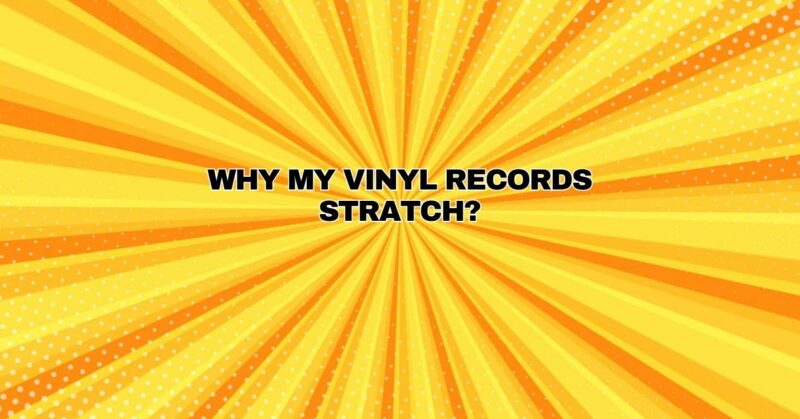Vinyl records are revered for their warm analog sound and tactile charm, making them a favorite among audiophiles and music enthusiasts. However, vinyl records are not invulnerable, and one of the most common concerns for collectors and listeners is the risk of scratches and damage. Understanding why vinyl records scratch and learning how to prevent it is crucial for preserving your cherished vinyl collection and maintaining sound quality. In this comprehensive guide, we’ll explore the causes of vinyl record scratches and provide valuable tips on prevention.
1. Dust and Debris:
One of the primary culprits of vinyl record scratches is dust and debris. When microscopic particles settle on the record’s surface, they can act like abrasive materials, causing fine scratches as the stylus travels through the grooves. Dust and debris can come from various sources, including the environment, record handling, and even the stylus itself.
Prevention:
- Regularly clean your records using an anti-static brush before each play to remove surface dust and debris.
- Maintain a clean listening environment free from excessive dust and dirt.
- Handle your records by their edges and labels to avoid transferring oils and contaminants from your fingers.
2. Stylus Quality and Alignment:
The condition of your stylus (also known as a needle) and its alignment play a crucial role in preventing record scratches. A damaged or worn stylus can dig into the grooves, causing permanent damage to both the stylus and the record.
Prevention:
- Invest in a high-quality stylus and ensure it is properly aligned with the tonearm.
- Replace the stylus regularly, as worn or damaged styluses are more likely to cause scratches.
- Avoid adjusting the tonearm or stylus tracking force while the record is playing.
3. Dirt and Contaminants on Records:
Records that are not properly cleaned and maintained can accumulate dirt, grime, and contaminants over time. These foreign substances can create friction between the stylus and the record surface, resulting in scratches.
Prevention:
- Clean your records using a suitable record cleaning solution and a soft brush.
- Use inner and outer record sleeves to protect records from dust and contaminants when not in use.
- Store records vertically to prevent dirt from settling on the surface.
4. Mishandling and Carelessness:
Improper handling and carelessness can lead to vinyl record scratches. Dropping records, mishandling the tonearm, or using excessive force when cueing can all result in damage.
Prevention:
- Always handle records with care, holding them by their edges and labels.
- Be gentle when cueing and lowering the stylus onto the record.
- Ensure your turntable and tonearm are in good working condition to prevent mishaps.
5. Poor Quality Cleaning and Maintenance Tools:
Using subpar cleaning tools or harsh cleaning solutions can inadvertently cause scratches. Low-quality brushes or abrasive cleaning materials can damage the record’s surface.
Prevention:
- Invest in high-quality record cleaning brushes and anti-static brushes.
- Use a recommended record cleaning solution that is safe for vinyl records.
- Follow manufacturer guidelines for cleaning equipment and solutions.
6. Environmental Factors:
Environmental factors can contribute to vinyl record scratches. Fluctuations in temperature and humidity can cause records to warp, which can affect the stylus’s contact with the grooves and result in scratches.
Prevention:
- Store records in a stable environment with controlled temperature and humidity.
- Avoid exposing records to direct sunlight, extreme heat, or cold.
- Use inner sleeves to protect records from moisture and humidity.
In conclusion, while vinyl records offer a unique and nostalgic listening experience, they require proper care to prevent scratches and maintain their quality. By understanding the causes of vinyl record scratches and implementing preventative measures, you can enjoy your vinyl collection for years to come without compromising sound quality or damaging your cherished records. Remember that preserving the condition of your records is essential to fully appreciate the rich, analog sound that vinyl enthusiasts hold dear.


